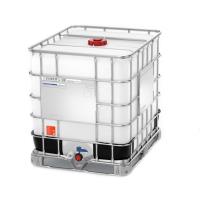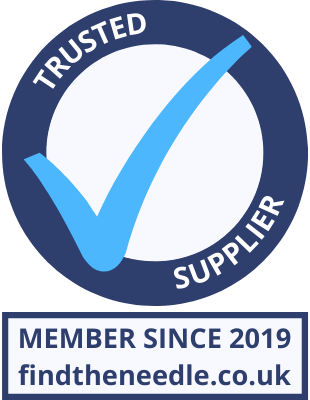 Add My Company
Add My Company
Sign In

Intermediate bulk containers, or IBCs, are commonly used to store industrial liquids or hazardous chemicals.
But these heavy-duty containers are also perfect for storing water.
An IBC water tank can accommodate a huge quantity of water, and its versatile design and transportability make it a great fit for this task.
IBC water tanks can be used in a wide variety of roles and are completely reusable, making them a cost-effective way to store water.
You’ll often find IBC water tanks on construction sites or in large warehouses, but they have many other uses too.
In this article, we take a look at the practicalities of using IBCs as water tanks.
HOW MUCH WATER DOES AN IBC STORE?
Intermediate bulk containers are designed to carry large quantities of liquid or semi-solid substances, so they’re perfectly suited to storing water.
Because it is termed ‘intermediate’, an IBC is generally built to hold a capacity of 1,000 litres.
An IBC might be slightly smaller, even slightly larger, but not significantly.
HOW HEAVY ARE IBCS FILLED WITH WATER?
A full IBC water tank at maximum capacity of 1,000 litres will weigh at least 1,000 kilos.
That is just the water, so you also need to factor in the added weight of the IBC and that can vary significantly depending on the design.
A rigid IBC is generally made of solid plastic that’s placed inside a steel cage for protection and mounted a steel pallet, which allows it to be easily transported by forklift.
These designs are robust, offering plenty of protection, but they also add weight.
A standard 1,000-litre IBC water tank weighs on average 65 kilos when empty.
Add in 1,000 litres of water, and you have a total weight of 1,065 kilos.
Flexible IBCs weigh less because they don’t have a steel cage or pallet mount and are produced from woven plastic rather than rigid.
They don’t offer nearly as much strength and protection, but they are flexible.
Flexible IBCs can weigh as little as 10 kilos, making them easier to transport and compress than a rigid IBC when empty.
Of course, when full you have to factor in the weight of the water as well.
HOW LONG DOES AN IBC LAST?
The great thing about intermediate bulk containers is that they’re reusable.
That means, if properly maintained, an IBC can last for years.
It’s recommended that a quality assurance check be carried out on an IBC water tank every two to three years to ensure it still meets safety requirements.
Individual parts of a rigid IBC can be replaced, and a steel frame could be expected to last a decade if cared for effectively.
Lifespans can vary if materials other than water – such as hazardous chemicals – have previously been held in an IBC.
HOW LONG CAN YOU SAFELY STORE WATER?
Water can be stored safely for a long period of time in an IBC water tank, but it needs to be rotated at least every six months.
Water can become toxic if left in plastic too long, so for safety reasons you need to keep it fresh where possible.
If water has been left for a long time, you may need to run a quality test before drinking it.
HOW DO YOU KEEP WATER CLEAN IN AN IBC?
For safety, it’s important to keep water clean in an IBC.
When filling a tank, you need to ensure that the lid has been sealed tightly shut to prevent anything else getting in.
The best – and safest – way to do this is to simply rotate the water out where possible.
You can also employ water filters, or purifiers, to keep water healthy for consumption in the long term.
If in doubt, don’t drink the water if you’re worried it may have become toxic.
CAN YOU STACK FULL IBC CONTAINERS?
Full IBC containers can be stacked if they’re on their steel pallet mounts.
In fact, that is what rigid IBC water tanks are designed to do.
With appropriate safety measures in place, and staff training, they can be stacked vertically for storage and transport. If you’re interested in purchasing an IBC water tank, contact ITP Packaging today and speak to our expert team before placing an order.
For more information on Using IBCs for water tanks: What do you need to know? talk to ITP Packaging Ltd
Enquire Now
List your company on FindTheNeedle.

